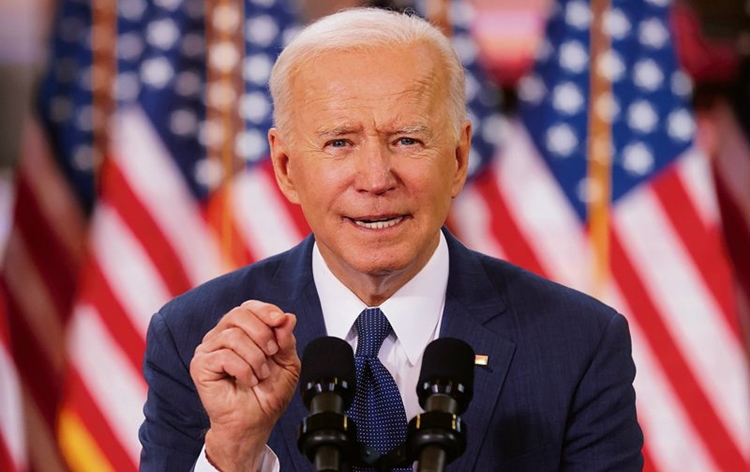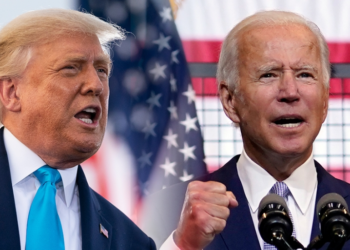This article is not in any way political but rather an angle on how the winner of the forthcoming U.S. Presidential elections might influence a global oil economy that Nigeria is reliant on.
There is a consensus that Politics has an influence on the Energy markets and as observed in history, political developments have had ripple effects on the oil and energy economy. Recent history shows the political intervention by the United States President, Donald Trump earlier this year as he made diplomatic calls to Crown Prince Mohammed Bin Salman and Russian President Vladimir Putin to put an end to the oil supply glut that crashed oil prices to negative values. We can also recall the aftermath of the Venezuelan Presidential election in 2018, where a victory for Nicolas Maduro led to oil sanctions from the United States which boosted prices astronomically.
READ: Apple records $44 billion loss in market value amidst US trade war with China
As Joe Biden campaigns around the United States, there are global and International observers who have significant interests in the outcome of the elections. From Beijing to Caracas to Tehran, there are several governments who would prefer Joe Biden because of how his policies might positively influence their economies, but would a Joe Biden victory favour Abuja?
There have been murmurings in the oil industry on what a potential Joe Biden victory might mean for the energy markets and how his stance on oil and green energy might influence the markets.
READ: Akinwunmi Adesina is expected to reunite AfDB’s member countries after re-election
So, what is Joe Biden’s oil stance?
“I am not banning fracking, let me say that again. I am not banning fracking, no matter how many times Donald Trump lies about me” – These were the words of Democrat candidate Joe Biden at a rally in Pittsburgh a few weeks ago.
This was very surprising as we have known his stance on climate change, greener energy, and environmental pollution (which fracking causes). Former Presidential contestant and Democrat, Bernie Sanders also raised the proposition of banning fracking as soon as possible earlier this year. At that very time, Joe Biden claimed he would battle the fossil fuel industry as they are destroying the planet and they would be no new fracking, drilling on federal lands including offshore.
Joe Biden’s proposed drilling ban on federal lands is in line with his party’s objective on achieving “net-zero greenhouse gas emissions as soon as possible”. His policy is quite reminiscent of Barack Obama’s policy on banning oil and gas drilling off the certain coasts and shores.
READ: FG discloses when Nigeria will start exporting petroleum products
What about his deputy, Kamala Harris?
Energy experts know Kamala Harris has been the albatross on the neck of the oil industry in America. On a few occasions, she has expressed her desire to battle the fossil fuel industry and during her time as attorney general had vowed to take some energy industry participants to court. She has also proposed banning hydraulic fracturing. Biden’s agenda on oil is to promote a greener United States and adding Kamala Harris as his deputy would entail this objective would be passionately pursued.
So how then will a victory for Joe Biden and Kamala Harris mean for the global oil industry?
In November, the US general elections would take place and the winner would provide an outlook on what we expect from supply and demand, fundamentals in oil prices, the end or continuation for shale, and relationship with oil cartel OPEC.
Domestically, if Joe Biden stops new drilling, it would significantly reduce US oil production by 2 million barrels per day by 2025, which is significant to reducing supply from the markets and consequently props up prices. Everyone knows how much OPEC+ have been desirous of a weak shale industry and how it would bring OPEC back to controlling and dictating the oil market.
READ: Total Nigeria caught in the oil demand and lockdown saga
How then does Nigeria benefit?
Nigeria, a member of OPEC, would benefit from the weakness of Shale oil and US production in many ways.
With US supply drastically reduced, imposed cuts on Nigerian production would be tapered back to normal levels and this would significantly improve our oil revenue and economy fortunes as it is observed that 90% of our export earnings come from oil sales. From Trump’s inauguration in 2017, till early this year, a significant increase of 3.9 million barrels per day has been observed U.S production, which is why we have been having suppressed prices as supply as built over the Trump years.
Increase in prices means increase in revenue
During the Trump administration, there were situations where Donald Trump would protest the rise of oil prices above 70-80 dollars because of how it increased gasoline prices for his citizens which are his priority. He ensured oil production in the United States never stopped to bring global prices down to a desirable level. Donald Trump also uses his influence as the World leader to reduce OPEC supply while still maintaining his country’s supply in the market. Also, it was reported that there were several times, China, one of the world’s largest consumers were persuaded to purchase U.S oil and other commodities. A Joe Biden presidency might alleviate the political tensions between US and China which might see China buy oil elsewhere which includes Nigeria’s Bonny light.
Significantly, a world with less shale signifies hope for higher Oil prices and probably less CAPEX (Capital expenditure) for oil companies in United States which technically reduces the American chokehold on the global markets. Until Nigeria fully diversifies her economy, we are subject to political developments in other countries for our own economic survival.























A peace with Iran and Venezuela will add so much oil to market that a drop in U.S. production would be insignificant. The oil industry is gloomy. I fear for Nigeria. Imagine all these problems with next-to-nothing export from Venezuela, Libya and Iran.